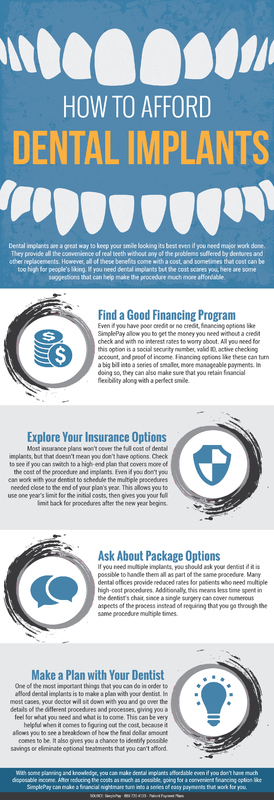Tips for Managing the Costs Associated With Dental Implants

The bad news is that several of the natural teeth need to go. Once that has sunk in, the dentist then points out that the patient is a perfect candidate for dental implants. Along with learning more about what the procedure entails, the patient is likely to have concerns about managing the expense. Here are some tips that will make it easier to come up with a plan and be able to shoulder the cost with relative ease.
Going Over All the Steps
Getting dental implants is more complex than being fitted for a set of dentures. The installation and the creation of the caps will take place in a series of steps. For this reason, it pays to go over the process from start to finish. Along the way, it’s possible to learn more about how many office visits will be required, what costs are associated with each one, and how much money will be spent by the time everything is completed.
Managing Multiple Implants at the Same Time
Since the patient will need several implants, it makes sense to find out if having them done all at one time can offset some of the expense. Assuming this is an option, the overall charges may be reduced somewhat. Keep in mind that the dental professional will only submit to multiple installations at the same time if the bone structure of the jaw and the general health of the patient will allow it. While managing costs matter, the well being of the patient is the priority.
Taking a Good Look at the Dental Insurance
Once there is a firm grasp on how much the procedure will cost, turn to the provisions found in the dental insurance policy. What will the insurance provider cover in part or in whole? Are there some elements of the process that the policy will not cover at all? In the best case scenario, the policy will cover the bulk of the expenses, leaving the patient with a smaller amount to pay out of pocket.
Looking into the Option of a Health Loan
Even with insurance, covering the amount left may create a financial burden for the patient. One way to structure the expenses to better advantage is to look into the idea of obtaining a health loan. Lenders who offer this type of financial help typically require the same kind of information as any other lender, including information about income, proof of identity, and an active bank account that can be used to remit the installment payments.
Learning that there is the need for dental implants does not have to be something that triggers anxiety about cost. Take the time to explore all the options in terms of keeping the costs lower and what the insurance will do to cover those expenses. If the need arises, arrange for a health loan in advance and make sure the repayment terms will fit neatly into the household budget. Once the arrangements are in place, it will be easier to focus on having the procedure and looking forward to sporting a health looking set of teeth once more.









